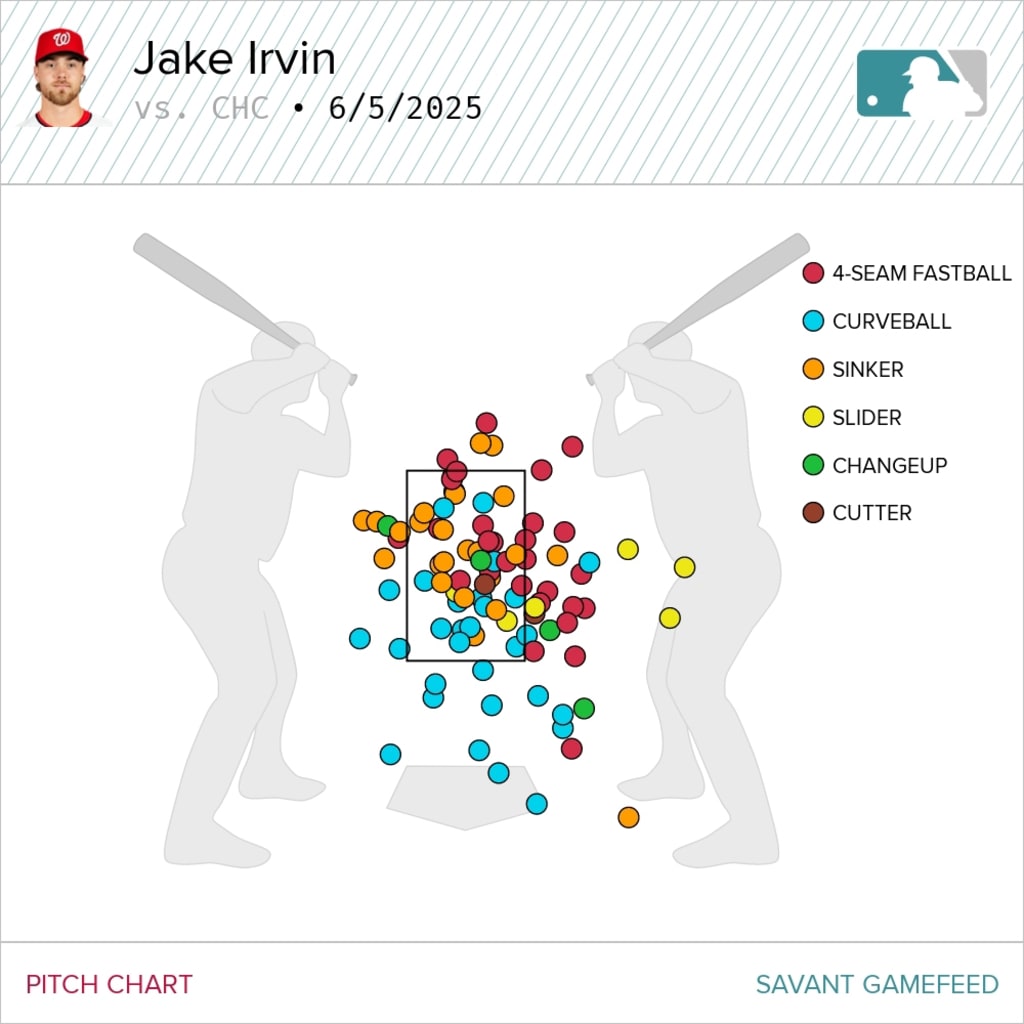WASHINGTON -- The Nationals returned to Nationals Park after a scoring-fest on their road trip to Seattle and Arizona and tallied a total of six runs in their three-game series against the Cubs this week.
The Nats dropped the finale on Thursday night, 7-1, and did not score until there were two outs in the ninth inning.
“They’re in first place [in the National League Central] for a reason, right?” manager Dave Martinez said of the Cubs (39-23). “You see what they can do -- they put the ball in play, they’ve been hitting the ball hard all year, they make good defensive plays and their pitching keeps them in the game. We can do that as well. I’ve seen signs of it. We’ve got to do it consistently.”
Here are three takeaways as the Nationals prepare to host the Rangers this weekend.
Irvin looking to quiet first-inning offense
Starting right-hander Jake Irvin has allowed a total of 18 hits in his past two outings, compared to 15 hits across the previous three -- a stretch that included eight scoreless innings on May 24.
“He’s throwing a lot of balls over the heart of the plate,” Martinez said. “He’s got to start working ahead. He fell behind quite a bit today. When you do that and you have to throw a strike, they’re ready to hit.”
Against the Cubs, Irvin gave up three runs on eight hits and two walks across five innings. He would take back a first-inning curveball to Pete Crow-Armstrong that went for a two-run homer if he could. Irvin recorded three strikeouts across 94 pitches (60 strikes).
“I think, at the end of the day, it’s just the homer,” Irvin said. “Other than that pitch, I thought we executed pretty well.”

Irvin has recorded a 10.38 ERA in the first inning this season, third-highest among all starters behind teammate Mitchell Parker and A’s southpaw Jeffrey Springs (both at 10.50). Fifteen of Irvin’s 35 runs allowed this season (43 percent) have come in the opening frame.
“For me, it’s just trying to attack, stay in attack mode and make guys earn it,” Irvin said of the first innings. “I made guys earn it today. They put good swings on bad pitches and at the end of the day, guys are good hitters up here so you’ve got to make better pitches.”
Hard-hit balls don’t convert to hits
James Wood entered the game ranked in the 95th percentile in exit velocity. He clocked three balls over 100 mph, and yet, he went 0-for-4 on the night. Let’s break down his at-bats:
- First inning vs. Drew Pomeranz: 111.5 mph lineout to right field, 80 percent hit probability
- Third inning vs. Colin Rea: 103 mph flyout to left field, 65 percent hit probability
- Sixth inning vs. Rea: 104.2 mph groundout to pitcher, 32 percent hit probability
- Eighth inning vs. Brad Keller: 97.5 mph lineout to center field, 35 percent hit probability
“We put good swings on balls. I think James had kind of the trifecta today -- lining out to every part of the field,” Irvin said.
Making defensive adjustments
When the offense isn’t running up the scoreboard, the defense becomes that much more important. When Martinez watched the series as a whole, he noticed a change as the temperatures crawled into the 90s in Washington, D.C.
On Thursday, for example, third baseman Amed Rosario was charged with a fielding error on a Dansby Swanson grounder that only had a six percent hit probability.
“We’ve just got to get ready, that first step,” Martinez said. “I know it’s starting to get a little warmer now, but we’ve got to get ready to catch the ball. We’ve got to make plays. I always talk about the three things that have got to be constants to compete. Defense is one of them. We’ve got to play good defense.”
